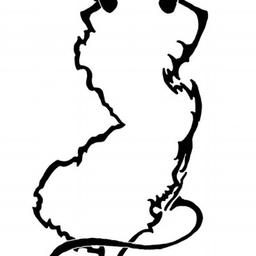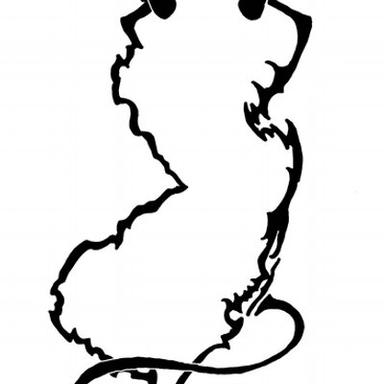What made you want to become the editor of a journal (other than the fame, glory, and extravagant wealth, of course)?
It wasn't something I initially set out to do. My first interaction with Jersey Devil Press was as a writer--this was in 2010, when the magazine was only about a year old--and a year later, I joined the staff as a reader. As I suspect is the case with many small literary magazines, we're all volunteers, and responsibilities get shuffled around according to who has the time to take them on as well as a reasonable level of field experience. I became an editor in 2013. The magazine's vision and tone were what first put it on my radar when I was starting to send out my own work, and I have tried to maintain that irreverent joy and weirdness.
What is your ideal cover letter to see for a submission? Simple and sweet? Professional? A few kind words peppered in? (For example, I know you prefer the bio at the end of the story document.)
Basic politeness and brevity are the safest approach. I'm not eager to work with writers who come across as unhinged in their cover letters.
You have a 'Behind the Curtain' breakdown of your submissions process. Did you start with this or create it after receiving too much vampire erotica?
That was here when I moved in, so to speak; a cherished legacy from the founding editors, Eirik Gumeny and Monica Rodriguez. I will never take it down.
If you could bring one person back to life to write a story for you, who would it be, and why?
Not someone famous. An ordinary person who was full of stories but never had the opportunity to write them down. A dreamy goat farmer. An assembly line worker whose wild imagination kept her sane. Someone like that.
If you could sum up Jersey Devil Press's vibe in six words or less, what would they be?
An island of misfit toys.
Your guidelines say you love haiku, scifaiku, horroku, and so on. What is it about these you like? And do people send them a lot, or still on the hunt for more?
We do get haiku and related forms from time to time, but I would LOVE to see more. Effective haiku are dazzling magic tricks; they go off like fireworks in your imagination. In a handful of words, they surprise you--sometimes more than once--by pairing things in unexpected ways that reveal new insights, or offering a different angle on some familiar image that transforms it.
There are the well-worn (for good reason) pieces of advice like "read submissions guidelines" and "read the journal you're submitting to," but do you have any other advice for prospective writers looking to get their work published?
Remind yourself that getting lots of rejections is normal. Try to embrace it. Publishing is so subjective; even when you are diligent about researching places before you submit and meticulous about following their guidelines, there are many reasons why an editor still might pass that are outside of your control (e.g. it's too similar to another piece they've already accepted). It's okay to be disappointed when you get one, though. You are making art, so experiencing the full range of human emotions is essential. Otherwise, all your stories would sound like they were written by a robot.
View Jersey Devil Press on Chill Subs

